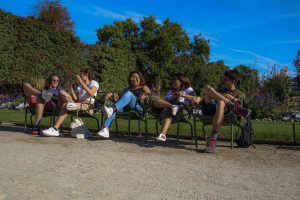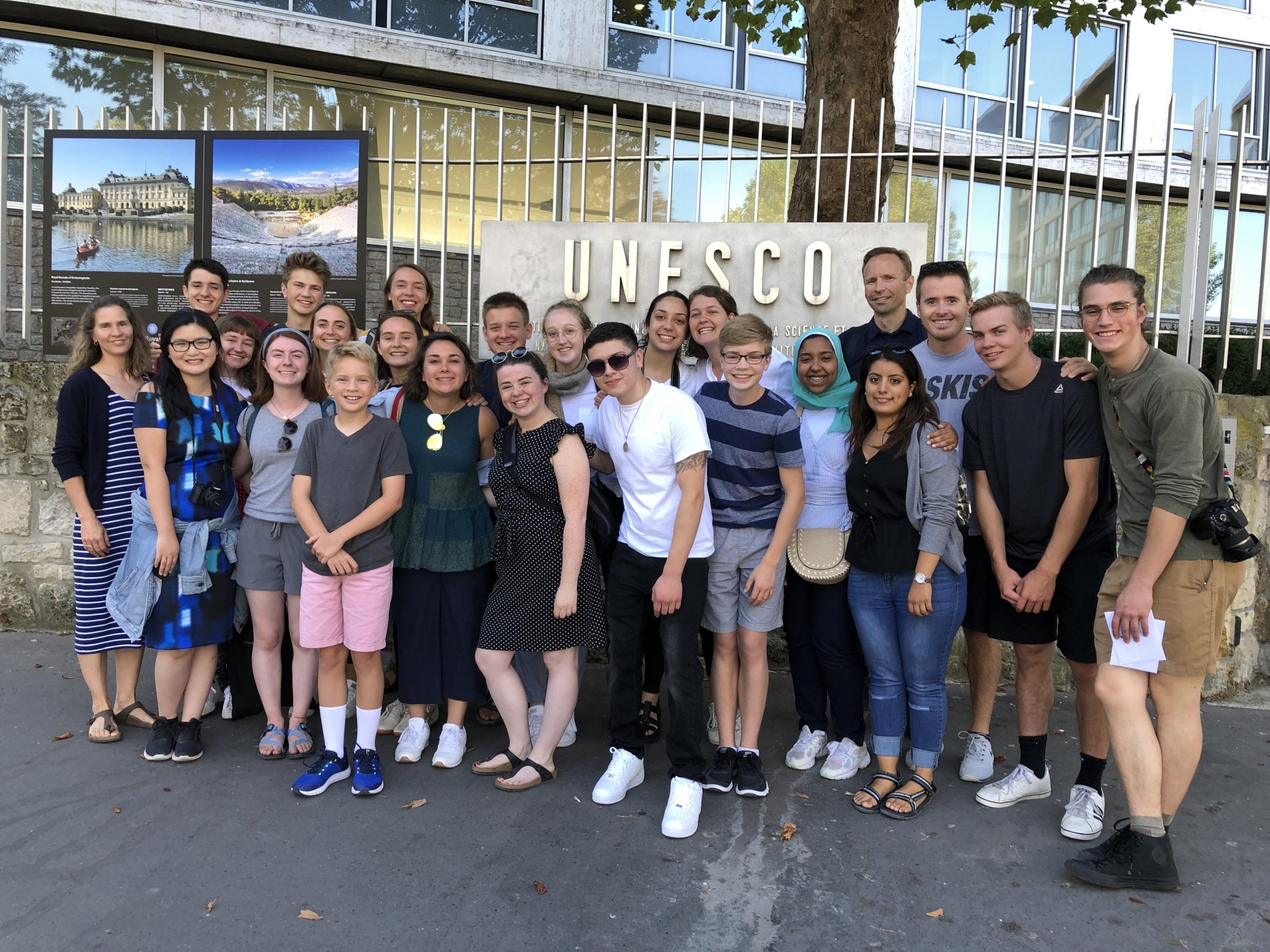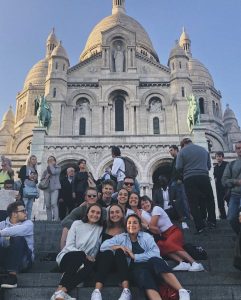Paris, France: Launching Global Semester
Upon our arrival to Paris, I could not help but wonder, “what are the reasons we are starting in Paris for this year’s Global Semester?” Paris exists as one of the most iconic cities in Europe, but what are the reasons we begin our study of education in Paris? As it turns out, our reason for visiting became quite clear – but not before we saw the sites!

On the day of arrival, we acclimated our internal clock with a calm day. We walked around the city glimpsing Notre Dame, the Louvre, and the Eiffel Tower before we took a closer look later. On the next day, Professor Leer split us into small groups and sent us out on a scavenger hunt. Groups sought out famous landmarks as well as “essential experiences” like sharing a baguette or strolling down Champs-Elysees Avenue. While traversing Paris from end to end we were moved not only by the opportunity to be in Paris, but also by the bond growing amongst the group.
However, it was not until we traveled to UNESCO, the United Nations Education Science & Cultural Organization, when I realized how critical our trip to Paris would be for the remainder of our Global Semester. UNESCO’s headquarters were tucked nicely in the shadow of the Eiffel Tower. At UNESCO, we learned about the agency’s function. In our visit, we met with the chief of the section of teacher development, Edem Adubra who engaged us in a discussion on how UNESCO operates and how they promote increased educational quality. We learned that UNESCO provides governments with information to develop education policy in order to satisfy the UN’s fourth goal for sustainable development, which aims to provide equal access to quality education throughout the world. With a background for how UNESCO attempts to accomplish the fourth goal, we asked Dr. Adubra questions to prepare us for our time in schools around the world and general questions about UNESCO’s operation.

In addition to UNESCO’s tangible goals, Dr. Adubra described UNESCO’s mission holistically, based on UNESCO’s constitution. UNESCO’s constitution states, “since wars begin in the minds of men, it is in the minds of men that the defenses of peace must be constructed.” To do this UNESCO supports education, because education allows students all around the world to be able to learn how to live together and tolerate another’s culture. Even though we have only now started our journey, I believe that St. Olaf’s Global Semester aims to achieve this same goal. By visiting four continents and six countries, we will engage directly with other cultures. In interacting with other cultures and thinking deeply about our experiences, we hope to gain a global perspective in order to look beyond our own context.

From our eye-opening experience at UNESCO, we headed to the Louvre to witness one of the world’s most famous art museums. In the remainder of our short but sweet time in Paris, we went to everything from Sacre Coeur to the Musee D’Orsay. While our time in Paris was amazing in and of itself, I cannot help but realize that the biggest reason we found ourselves in Paris was the lasting impact of our UNESCO visit. The lessons from UNESCO will allow us to return to and compare the different pedagogical strategies we meet. How does Education in Tanzania attempt to give its students a global perspective? What about in Argentina? But also, our visit with UNESCO will allow us to engage with the cultures of the world in an appropriate way in order to gain a global perspective.
— Brennan Brink ’21
You must be logged in to post a comment.